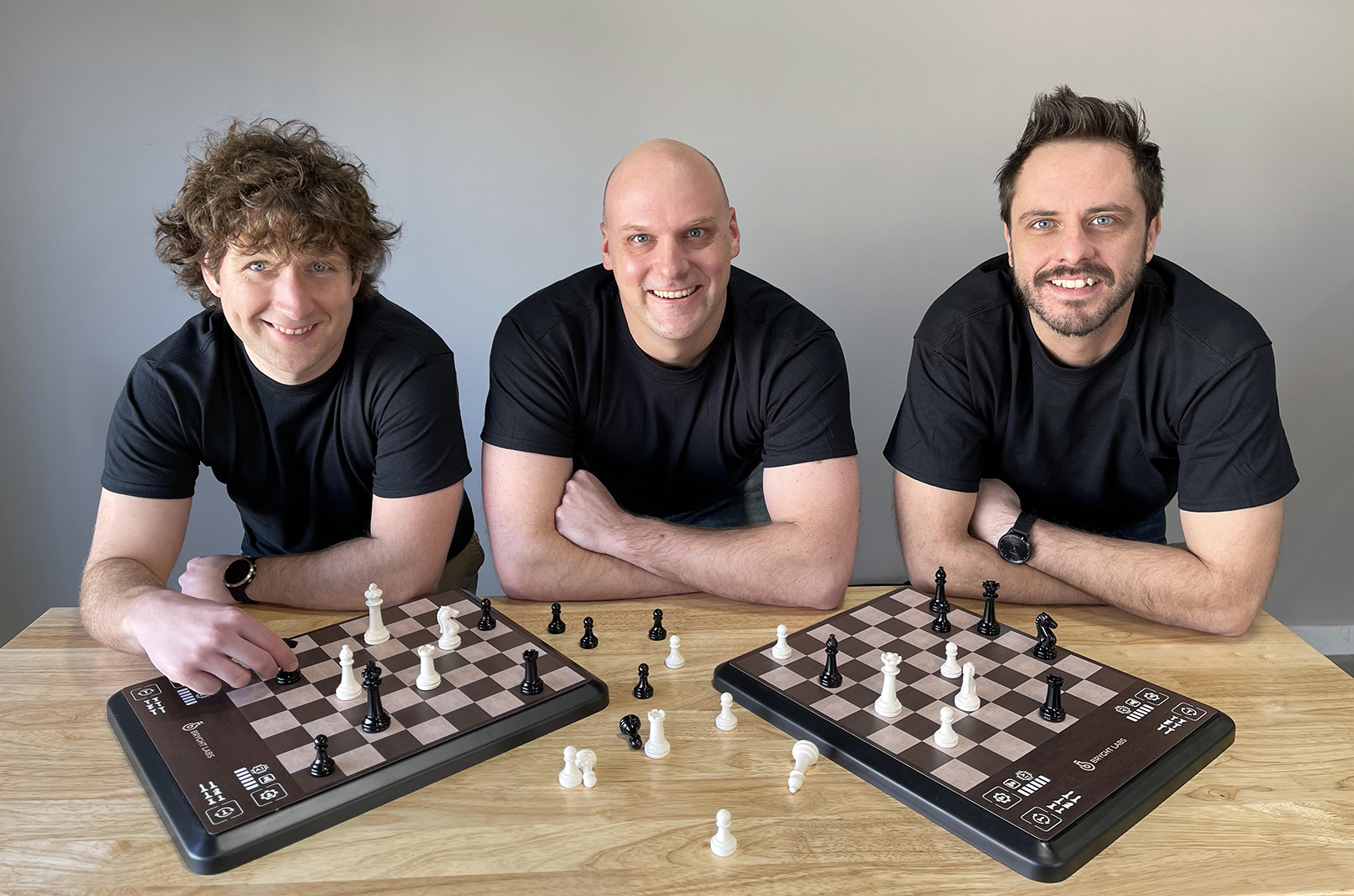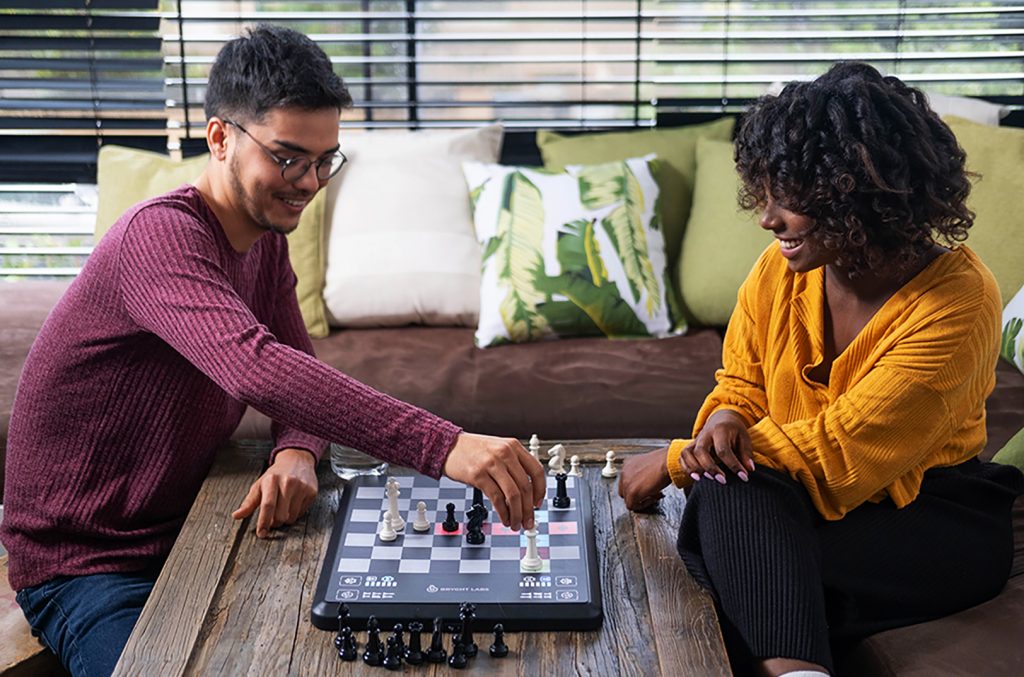An Overland Park-built connected gaming startup is making moves that run the queen’s gambit — approaching nearly $1 million in crowdfunding and unveiling its mission to make STEM-focused games more approachable.
“I think a lot of kids and adults lose interest right away in something like a Rubik’s cube or chess — because it’s difficult,” explained Jeff Wigh, serial inventor and CEO and one of three co-founders behind Bryght Labs, maker of ChessUp.
A first-of-its-kind, strategy-first, connected chess board, ChessUp serves as a coach, analyst, and worthy opponent — all in the course of a single game.
“I noticed my daughter playing chess on an app with one of her friends. I had played chess a little bit, not much, but I wanted to play chess with her and so we set up a game and started playing,” he recalled, noting an awkward realization hit him as the opponents grew more embattled in their first game.
“She’s a complete beginner and still learning how the pieces move. I know a little bit, but it’s like, do I let her win or do I just crush her? … That was the seed for ChessUp.”
The board gives novice chess players like Wigh’s daughter the opportunity to remove blunders, catch mistakes, and commit to competitive game play while learning the ropes, he explained.
Click here to learn more about the ins and outs of ChessUp and additional features that allow for virtual gameplay on its physical board — meaning players can interact on the platform from different locations.
Watch ChessUp’s Kickstarter video below, then keep reading.
“Our mission is really about making these [games] more approachable and more enjoyable on first experience, so people get hooked.”
And support for Bryght Labs debut crowdfunding campaign proves customers might already be addicted before their first taste of the gaming platform.
At the time of publication, ChessUp had brought in $797,099 with 26 days left on the clock for its Kickstarter campaign — which set a goal of just $30,000.
“Our Day 1 was way bigger than we expected. And every day since then has been way bigger than we expected,” Wigh said.
“What’s really cool though is the feedback that comes in from people. We’ve gotten emails and messages that are just like, ‘I love this; I want to be able to play with my dad,’ people don’t always want to be on a screen. They want a real board. You can set up the app [to] FaceTime or video call whoever you’re playing.”
Click here to back the project on Kickstarter. The project is also backed by MIT Sandbox at the Massachusetts Institute of Technology.
Behind the board
“We’re well-seasoned product developers and inventors. We work on risk. We don’t really work on the product. When there’s things that we know we can do, we put those off and we work on the risky part of the projects,” Jeff Wigh said.
“In house, we have all sorts of 3D printers and laser cutters and we cranked out a prototype — which is the prototype you see on Kickstarter. And it looks a lot like the final product. That prototype proved out all the functionality we needed to prove out.
“The technology — which is novel, there’s no chess board like it that can detect touching of the pieces, which is a key part of it — we invented that and proved it out very early. Then we had to prove out how to make that in a cost-effective way with manufacturing. We printed a pilot batch of 20 units and molded some frames and then got everything together in that last six months — and it all worked, so we just went to Kickstarter.”
With social isolation a continued reality of day-to-day life, solutions like ChessUp are growing more and more welcomed, Wigh said, noting they also serve as a prime example of ways innovation has driven life in the COVID-era.
“Chess went through a boom for two reasons,” he explained, citing the competitive world of tournament chess moving into the virtual realm and the Netflix release of “The Queen’s Gambit.”
“And social distancing turned people to online chess. We are happy to see COVID on its heels, but I think many people rediscovered a passion for the game.”
As interest in the game grows, Wigh and his partners, Adam Roush, chief design officer, and Justin Farrell, chief technology officer — who met while working together on an innovation team at Olathe-based Garmin — hope to expand their mission by launching original games.
“Our technology allows for a lot of flexibility. We just have to change the printed top, the shape of the pieces, and the user interface and we have a different game,” he said noting the trio hopes to create a library of content that promotes problem solving and logic.
“It’s kind of like flying an airplane of broccoli into your toddler’s mouth. You’re still [teaching them STEM] but you’re doing it as a game, so it’s a great way to learn.”







































